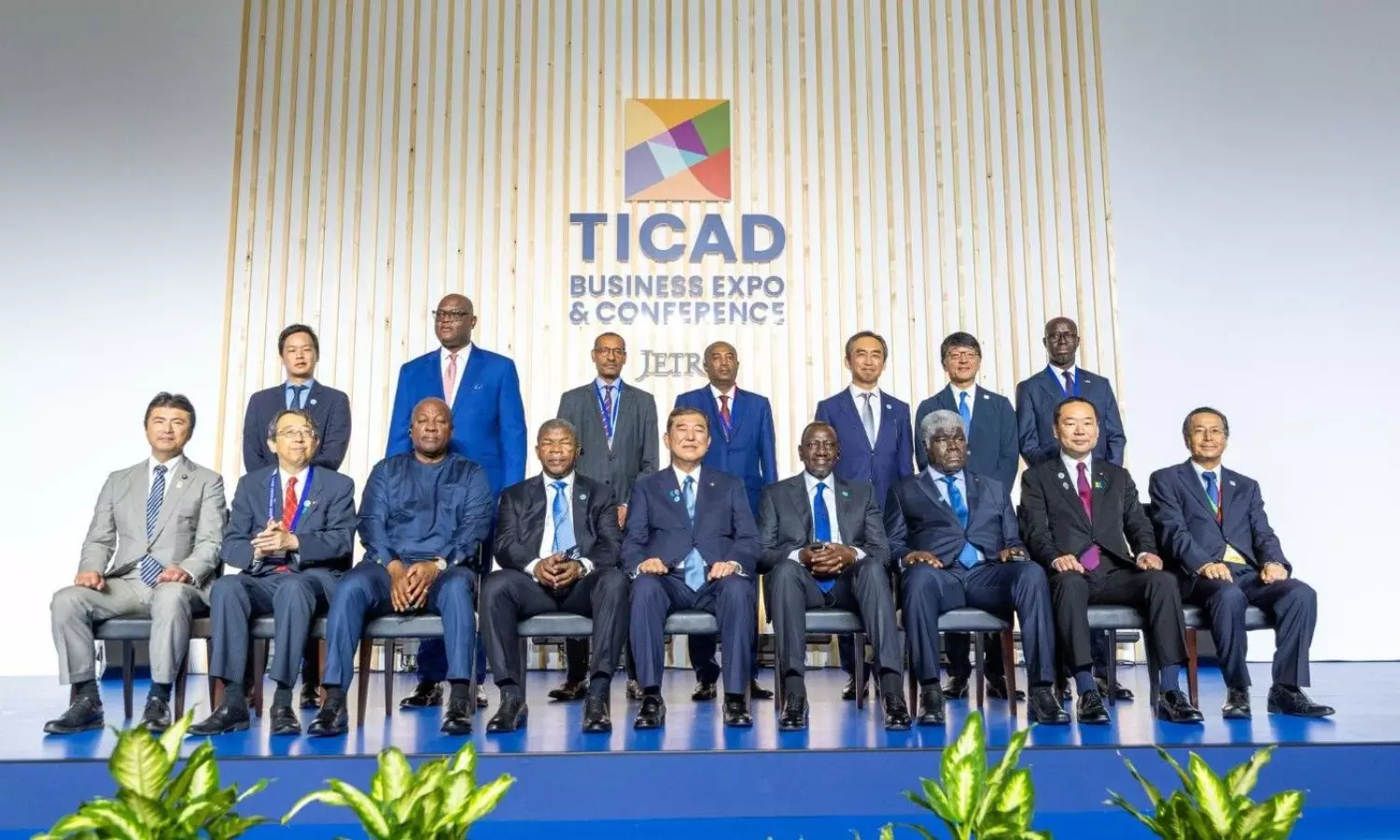Kenya, Japan strengthen ties with new trade & investment deals at TICAD 9
The Kenyan President pushes for tariff reforms, access for Kenyan avocados and tea, and stronger Japanese investment in green energy and EVs.

Kenya and Japan signed a raft of cooperation agreements at the ongoing Tokyo International Conference on African Development (TICAD 9) in Yokohama City, Japan, as both countries marked 60 years of diplomatic ties with a renewed focus on trade, healthcare, technology and peace-building.
The President of Kenya, William Samoei Ruto said the agreements covered finance, industrial training, human resource development, and health. “They include the Statement of Intent on the Samurai Bond, a financial instrument issued by foreign entities in the Japanese capital markets, signed between our National Treasury and Nippon Export and Investment Insurance,” he said. “Our plan to access financing in the Japanese capital markets is a leap forward in our innovative policy of diversifying resource mobilisation for priority national development and transformation.”
On health, the Letter of Intent and Concept Note on Accelerating Access to Cefiderocol — an antibiotic used to treat bacterial pneumonia — was signed between Kenya’s Ministry of Health and Japan’s Shionogi & Co. Ltd., with support from the Global Antibiotic Research and Development Foundation. A Memorandum of Cooperation on Human Resource Development was also concluded between the Kenya Industrial Research and Development Institution (KIRDI) and Japan’s Ministry of Economy, Trade and Industry (METI).
Ruto said the agreements reflect Kenya’s ambition to strengthen industrial capacity and diversify energy sources. He revealed that discussions with Toyota Motor Corporation are advancing, with the company set to provide 5,000 e-mobility vehicles for Kenya. “This project will include 30%–40% local content in assembly and eventually manufacturing,” he said, calling the partnership central to Kenya’s push for green energy industrialisation.
Kenya is positioning itself for collaboration in e-vehicle manufacturing, precision farming, renewable energy technologies and medical equipment supply. Ruto emphasised that Japanese companies were already playing a role in this transition. “Additionally, 120 Japanese companies have invested in Kenya, leveraging our strategic location, the gateway to Eastern Africa and indeed the entire continent, expanding infrastructure and fibre optic network, and vibrant financial and capital markets,” he noted.
On trade, the Kenyan leader acknowledged the significant growth but also the imbalance in bilateral flows. “Kenya and Japan have a strong and cordial partnership that goes back 60 years. Our trade has grown exponentially in that period, with trade growing by 33% in 2024. However, the trade relationship is heavily in favour of Japan,” he said.
Japan exports goods worth about $1 billion annually to Kenya, while Kenya’s exports to Japan stand at just $70 million. Ruto said he had raised the matter directly with Japanese Prime Minister Shigeru Ishiba, urging Japan to remove tariff and non-tariff barriers that hinder access for Kenyan produce. “Kenyan agricultural exports, including avocados, tea and flowers, deserve a fairer chance in the Japanese market,” he said.
In addition, Ruto held talks with the Japan Bank for International Cooperation (JBIC) to advance youth training, de-risk startups, and expand financing options for small businesses.
Beyond trade and investment, the Kenyan president used the TICAD forum to push Africa’s wider agenda of peace and regional stability. “For this reason, our regional blocs have remained engaged in conflict resolution and peace-building efforts. The East African Community and the Southern Africa Development Corporation are jointly working for peace in Eastern DRC, with IGAD focusing on Sudan and Somalia. To make peacebuilding and peacemaking efforts sustainable, African leaders have initiated reforms of African Union institutions, including the Peace Fund. Our resolve is to make the fund agile and responsive to African needs,” Ruto said.
He also reiterated the importance of unlocking intra-African trade under the African Continental Free Trade Area (AfCFTA). “Intra-African trade stands at a low 15% of the continent’s total trade compared to 60% in Europe and Asia. It is estimated that intra-African trade could exponentially rise to 50% by 2035. This would create immense wealth, generate millions of decent jobs, increase opportunities for small businesses and open new markets for local goods and services,” he explained.
“But for this to materialise, Africa must reform and revitalise agriculture, reform the global credit rating system in addition to setting up an African one, and provide a platform for the private sector to play a progressive role,” added Ruto. He also mentioned that Kenya is committed to reforms that will make the AfCFTA a functional driver of Africa’s transformation.
Moreover, President Ruto thanked Japan for its longstanding support of Kenya’s development, particularly in infrastructure, energy and port expansion. “Japan has provided our country with more than $5 billion in the past 60 years of our strong and mutually beneficial relationship,” he said, citing projects such as geothermal development in Olkaria and expansion of the Port of Mombasa.
With the signing of new agreements at TICAD 9, Ruto said Kenya is ready to elevate its partnership with Japan into a new phase focused on innovation, green growth and sustainable peace-building across Africa.


